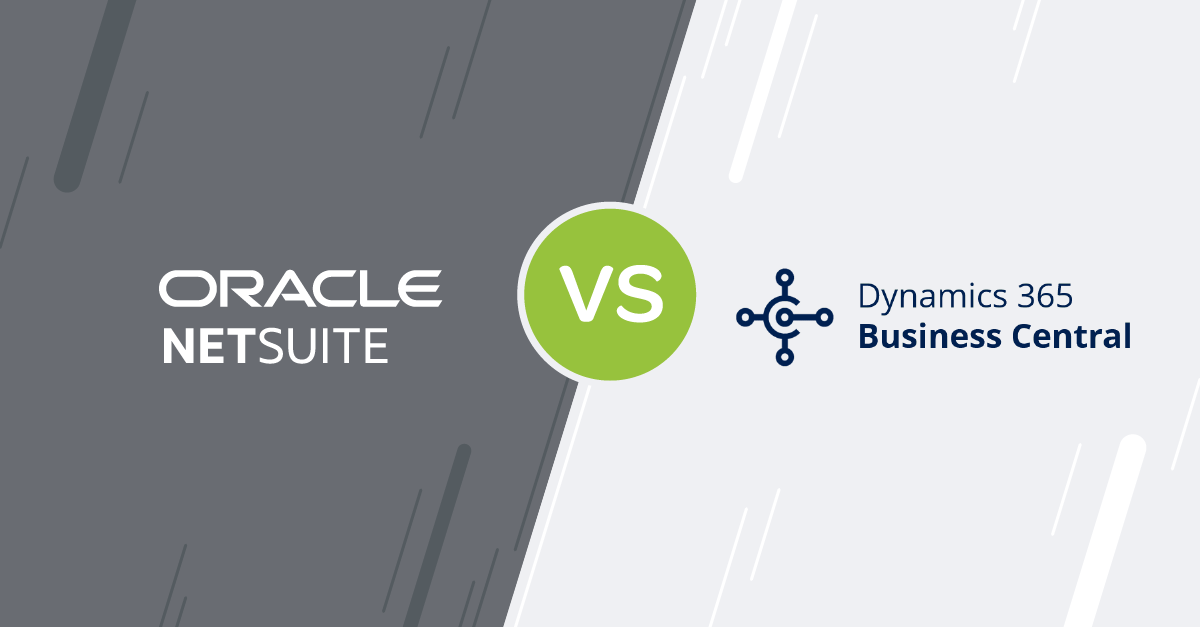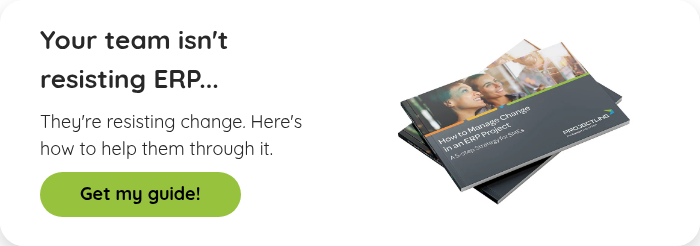Blog
Share this
10 Tips for ERP Go-live Success

by Jalene Ippolito on June 23, 2022
Think of your ERP go-live like opening night of a Broadway show. You spend months preparing for the event to ensure the set is just right, everyone knows their lines and the entire production flows easily. You run rehearsals to help you find the kinks and work them out before you’re in front of the live audience. And after opening night, you find areas to tweak and adjust with each show.
Just like a live musical production, your ERP go-live requires thought and planning to be a success. In fact, the work begins long before your cutover date – every task from the moment you kick-off your implementation project is leading up to that milestone. But as you get closer to the finish line, you might wonder what you can do to ensure a smooth transition. That’s what we’ll go through here – let’s get started!
What is an ERP go-live?
Your ERP go-live is the point in time where you move your system from the test environment (sometimes called the sandbox) to the production environment. Then users can start performing transactions in the new system and stop using your old software.
The specific approach to your go-live will depend on your requirements and the scope of your project – we recommend working closely with your ERP partner to decide which one is best for your business.
- Big Bang – You go-live with your new system and use it exclusively going forward, referencing your old system for archival data only. This approach takes the least amount of time and keeps everyone in your company running in the same system. If the system isn’t properly configured, there’s a risk of having one issue impact multiple departments (this can be mitigated with proper testing).
- Phased – You implement your ERP system in phases, based on modules, geography or business units. You’ll have multiple go-live dates, but each phase will be smaller and easier to manage. It requires a bit more coordination and can be cumbersome running multiple systems for a period. Your ERP partner can help you create a timeline that works best.
- Parallel – You run both your legacy system and new ERP software at the same time, giving users extra time to learn the new system while still working in the old one. This approach takes the most effort and can lead to duplicate data entry. You also have a higher risk of low user adoption because your team has the option to continue using the old system.
How do you ensure your go-live is successful?
1. Create a solid go-live plan
Once you’ve decided on a go-live approach (big bang, phased or parallel), create a plan that outlines the steps, responsibilities and timelines. Leave some wiggle room in your timeline to account for potential delays and identify your showstoppers – any issues that must be addressed before you can move forward with your go-live. When it comes to testing, this will help you prioritize issues and determine which ones have a critical business impact and which ones can be addressed after go-live.
Yes, there may be some bugs to work out after you go-live – this is to be expected and nothing to be afraid of. The key here is to set realistic expectations about what must be fixed before you can go-live (otherwise you could delay go-live indefinitely).
2. Understand your risks and have a plan to mitigate them
As part of your planning, consider all possible scenarios of what could go wrong. Pull in your team to get their perspectives and create a master list. Then create a plan of how you’ll address those challenges. Your list could be long – and that’s a good thing.
You can’t predict everything, but you’ll be glad you did this exercise. Your team will head into go-live feeling more prepared and confident that they can handle any issues that arise (whether you planned for them or not).
3. Create clear channels of communication
Throughout your go-live (and your entire ERP project), regular communication is essential. Choose a single communication method (like Microsoft Teams) for all project team members to use for sharing status updates and issues. Be sure to include your ERP partner in your communication plan so that everyone involved is on the same page.
As you prepare for go-live, remember to communicate with external partners like customers and vendors. Let them know you’re switching systems, when it will happen and what kind of delays to expect. Even if you don’t encounter delays that impact your partners, it’s better to set the expectation ahead of time.
4. Make sure the right people are available
Consider everyone that will be required for go-live and clear their other tasks so they can stay focused on the cutover. This includes your super users, individual users, IT team and any other internal resources that can support the transition. Do what you can to ensure they’re rested, calm and prepared to deal with any challenges that come up.
5. Prioritize user acceptance testing & training
Remember the list of potential challenges we talked about earlier? Thorough user acceptance testing will help mitigate those risks. Working through all processes and workflows using real data in your test environment will help you identify gaps and issues ahead of time. Even small issues can be more costly and time consuming to fix if you don’t catch them until after go-live, so test, test and test again.
You’ll also want to ensure your team is well-trained. If they aren’t comfortable before go-live, it will take longer to see ROI from your system. Throughout training, focus on value to the users, not just how to use the features. If they see how the system helps them be more productive and effective in their roles, they’ll be more likely to adopt it and invest in their own knowledge.
6. Do a dress rehearsal
Once you’ve signed off on user acceptance testing, do a cutover dress rehearsal in your test environment. You can practice migrating your data and validating that it’s clean and correct. Then run through the order of operations for go-live with your ERP partner. You should have a clear outline of the cut-off dates for transactions being migrated from your old system, what needs to be manually entered in the new system and who’s responsible for each step.
7. Listen to the pessimists, but assess their comments carefully
You may have people on your team who aren’t excited about the new system and provide critical commentary. While it’s easy to dismiss their feedback to keep the project moving, hearing what they have to say can prove valuable. If you’re confident that everything is in place and the rest of your team is prepared, forge ahead. But if they’re raising reasonable concerns, take a moment to re-assess and resolve any issues before going live. Even if it means pushing out your go-live date, it’s better to delay than to move ahead with issues that have a significant impact on your business.
8. Create a go-live checklist
Keep your entire team organized with a go-live checklist. Here are a few items to include in your list (feel free to add any others that make sense for you).
- Timeline of all tasks, including testing, training, data cleaning and migration
- Clear definition of roles and responsibilities during go-live
- Schedule of stop dates for using the old system (this could be a series of dates if you’re using a phased rollout)
- Tasks to be done before you turn off the old system (e.g. cutting cheques to make A/P simpler after go-live)
- Legacy system backup before migration
- Update financial data before migration (GL balances, open A/R and A/P transactions, inventory, etc.)
- Documentation that outlines key processes and important notes
- Links to any online training that’s useful for users
- Notifications to customers and vendors about your cutover date and how it impacts their interactions with you (be sure to include any new links they’ll need)
9. Take care of your team
You’ll spend months working on your ERP implementation (the same as you would if you were preparing for that Broadway show). It can be a long haul for your team as they handle the project and their day-to-day work at the same time. Leading up to go-live, stress levels can increase – partly from excitement, partly from the increased workload. Taking extra care of your team is essential at this point – look for ways you can help them manage the stress, calm their nerves and reward them for their hard work. Recognition goes a long way, whether it’s a company-wide email thanking the team for their contribution or a small gift. Chat with others in your company to get a sense of what rewards are most valued and go from there.
10. Celebrate your go-live (and take a break)
Transitioning to a new ERP system is a big change (and a lot of work). You’ll want to give your team some breathing room after go-live. Do something fun to celebrate the milestone as a team and allow everyone to recharge before diving into the next thing. Not only will it help your team avoid change fatigue, but they’ll also be more energized for the ERP post-implementation activities that come next.
Get excited about your ERP go-live!
There’s no question that prepping for your go-live is a lot of work. But it’s also exciting – the next step in your company’s move toward greater efficiency and higher growth! Hopefully this helps you prepare for the big event to ensure your go-live is successful and your team is supported throughout the process.
For even more guidance on managing this change for your team, grab a copy of our free guide below.
Share this
Stay in the Know!
Join other SMEs who receive our monthly ERP insights, tips and best practices.
You may also like

ERP Funding for Canadian Businesses

Should You Work with a NetSuite Implementation Partner or Go Direct?



